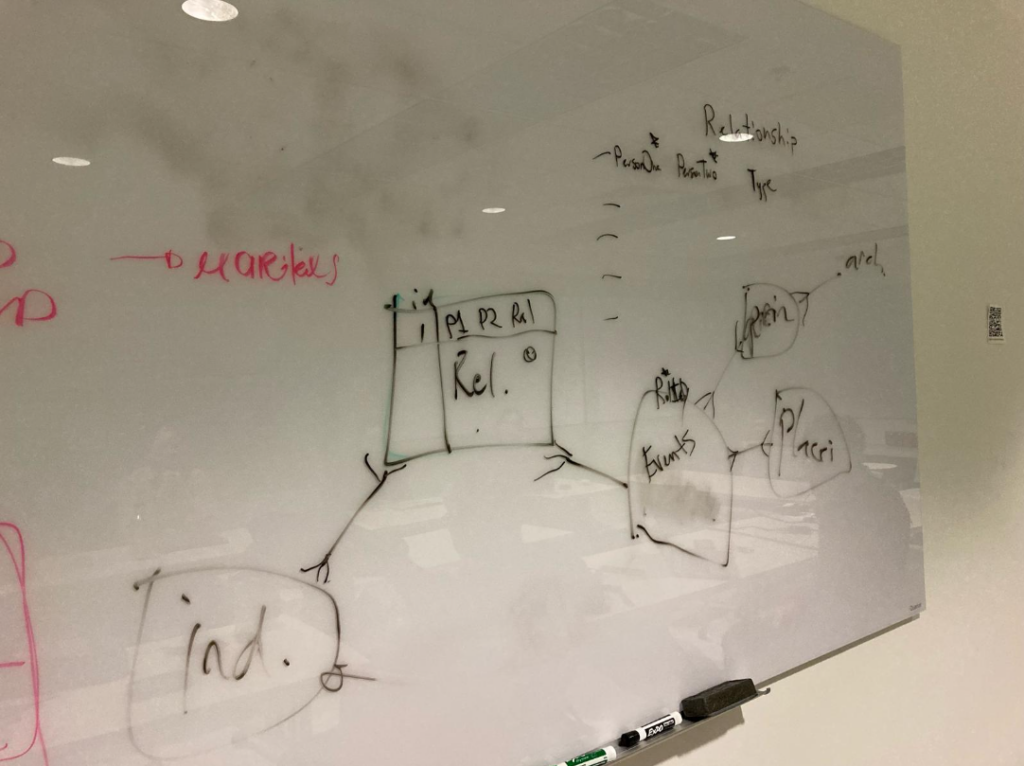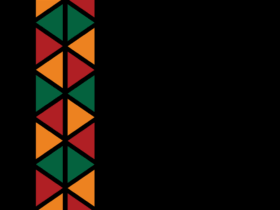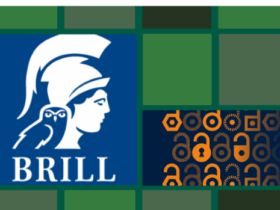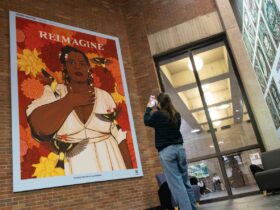When does data become a story? For Amanda Ortiz, a PhD candidate in the History department, data becomes a story by connecting the dots between people, places and their personal histories. Ortiz studies credit transactions in colonial Latin America investigating how personal relationships and social structures shaped credit networks before banks were established. However, connecting the dots between transactions and people is a difficult task. But, for Ortiz, it was an essential task to uncover individuals’ agency and influence otherwise unexplored or investigated during that time period.
To make those connections, Ortiz created a relational database containing data gathered from a variety of source materials that is helping her discover and trace people’s personal credit networks. Ortiz makes a distinction between her work on credit and how other economic historians might approach the topic. Unlike economic historians who may focus more heavily on notary records taking a broader view with larger datasets, Ortiz’s research centers individuals. Notary records do not capture the everyday actions of people, their movements, rationalizations and worries in regards to their credit transactions. Instead, focusing on individuals Ortiz is able to track and connect people’s stories in a different way that accounts for how they built networks of trust.
The relational database that Ortiz created exemplifies the usefulness of digital methods in the pursuit of humanist inquiry. Tracking people’s historical day-to-day interactions is difficult. Ortiz collected information across a variety of sources including baptismal and marriage records, personal letters as well as diaries of the everyday gold mining activities, shopkeeper’s accounting books, mine owners, and records from religious leaders and the government including judicial cases and wills. Every document had data Ortiz collected and noted down across a series of tables including names, type of interpersonal relationships, transaction amounts and dates. As Ortiz collected more and more data she began to see the same names appear across the different sources, but connecting them was time consuming and difficult to visualize.

Ortiz brought the project to the Spatial Humanities Group (SHWG) who collaboratively devised a schema for a relational database that re-organized the data into a searchable and easily editable format. Instead of scrolling through multiple tables of different documents and looking up names in each, Ortiz can simply write one query to the database which will then pull up, automatically, the documents that the name appears in. Besides saving time, the database has helped Ortiz conceptualize and visualize the personal credit networks she has been trying to track down throughout her research.
While Ortiz has experience working with complex data tables a lot of the digital humanities methods she is using in her research are new. Creating a relational database was a new kind of data structure for Ortiz and she relied on help from the SHWG to get started. For Ortiz, an important part of digital humanities work is being involved in the campus community and creating a network of people to learn and grow in. “It’s hard to do digital scholarship by yourself… it’s easier to do it in a group.” Besides the SHWG, Ortiz is part of the Digital History Interest Group that holds informal meetings and workshops where graduate students learn from and teach other new skills. Being able to participate in both groups has helped Ortiz stay involved in digital humanities work and consistently apply what she learns from workshops to her research. As Ortiz says, being involved in the community “keeps you motivated, because it’s not easy” to always be learning about new tools and methods.
Last spring Ortiz presented, with the Spatial Humanities Working Group, on the relational database project. The workshop materials are available online if you are curious about learning more about what a relational database is and how it might be used in your research. Also, if you are curious about learning more about SHWG events and workshops check-out the event schedule on the Spatial Humanities website. Curious about other events and communities involved in Digital Scholarship at Binghamton? Subscribe to the Digital Scholarship newsletter to stay informed about events or reach out to the digital scholarship team in the libraries! dscenter@binghamton.edu






